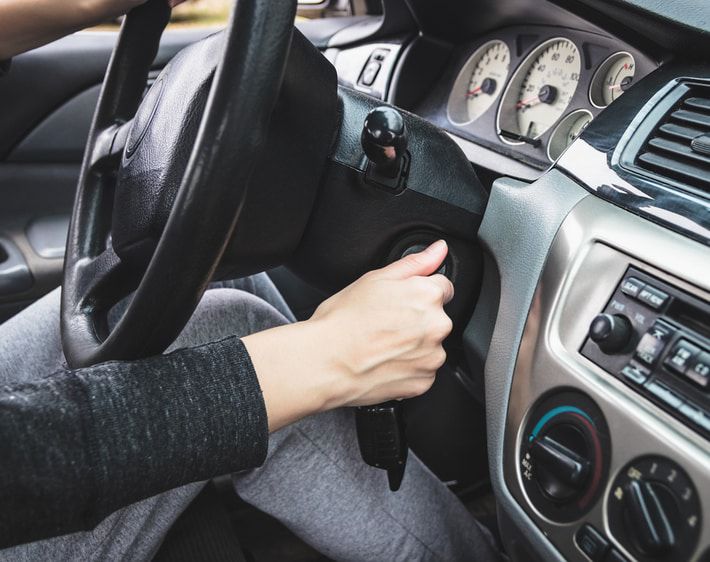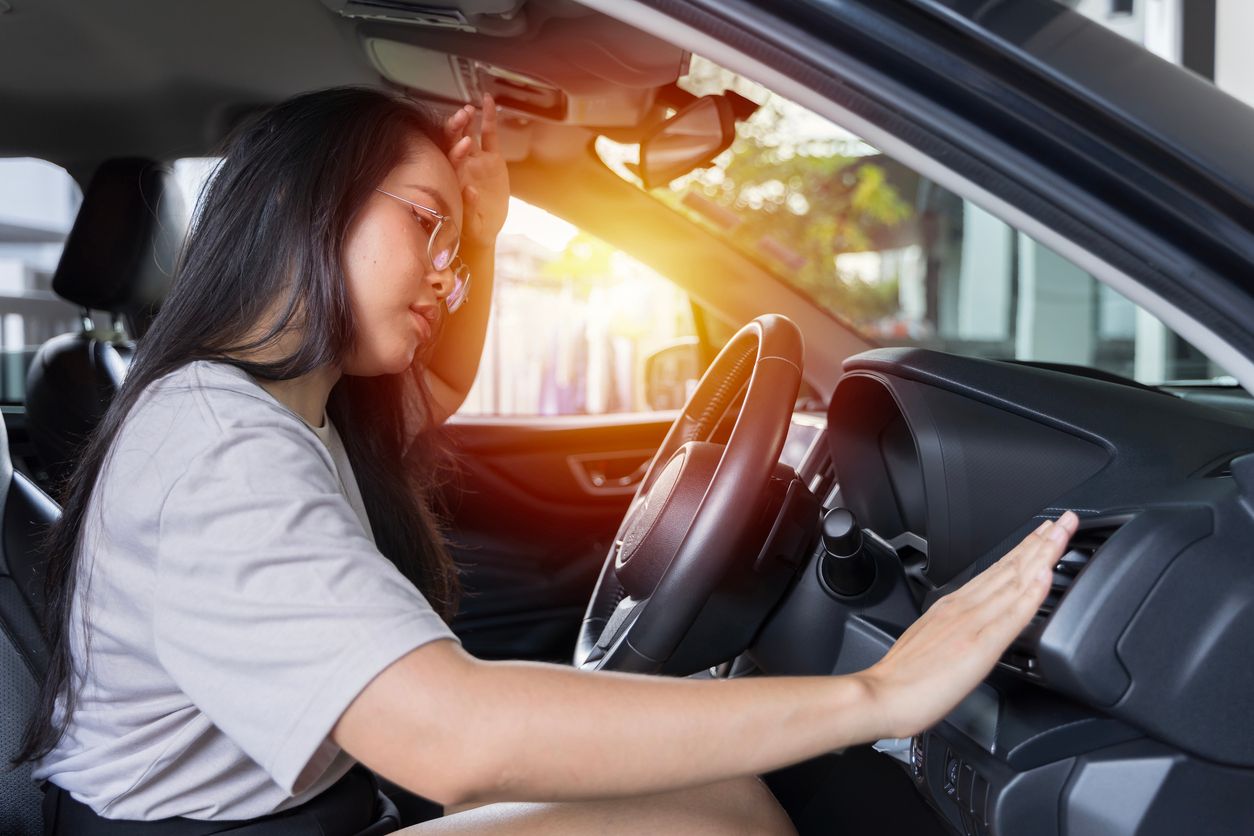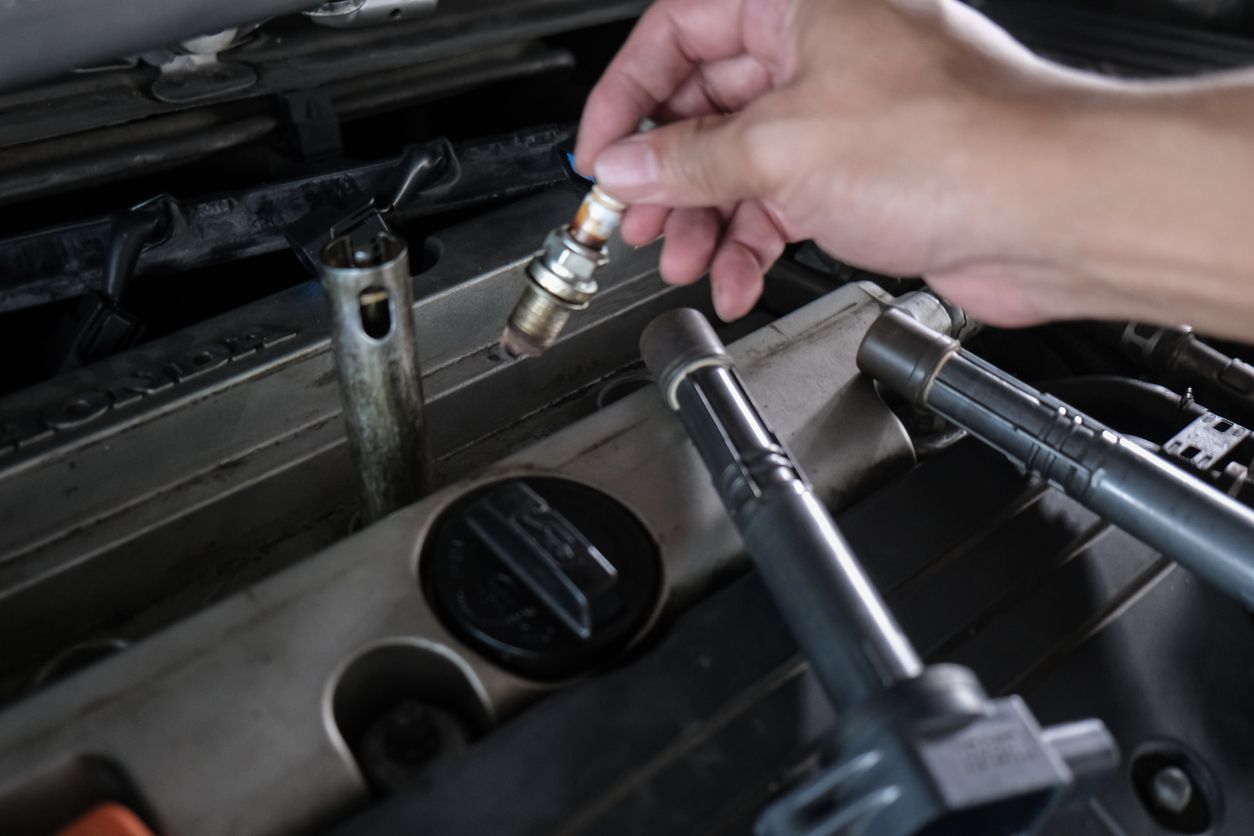Key Takeaways
- Clicking, smoke, or an engine that won’t crank could all point to a starter issue.
- Electrical failures, oil contamination, and worn-out parts are common culprits of starter issues
- Temporary fixes like jump-starting may help in a pinch, but professional service is the long-term solution.
- Firestone Complete Auto Care offers starter inspections and professional repairs.
Are you wondering how to tell if your starter is bad? Starter issues are more common than you might think, but they’re often mistaken for battery or ignition problems. Learn how to recognize the signs of a bad starter and what you can do about it.
What Is a Starter and Why Does It Matter?
The starter motor is a small but powerful component that uses battery power to get your engine running. A starter relay helps transmit that power. Without a properly working starter relay and motor, your vehicle may not start at all, leaving you stuck until it’s inspected or repaired.
What Are Common Bad Starter Symptoms?
1. Clicking, Grinding, or Whirring Noises
One of the symptoms of a bad starter is a single click—or a series of rapid clicks—when you turn the key or push the start button. However, a starter can die without making any sound at all, or it may announce its impending death with whirring and grinding noises—so listen up!
2. Power Without Crank
If your dash lights come on but your engine doesn’t turn over, your starter could be the issue—even if your battery seems fine.
3. Your Engine Won’t Start After a Jump
Tried to jump your car, and it still won’t start? It may not be a dead battery—it might be a bad starter. If this happens, it’s likely time to get your car to the nearest Firestone Complete Auto Care. If a jumpstart won’t fire up your engine, a certified technician can.
4. Smoke Is Coming From Your Car
Repeated attempts to start a car with a failing starter can overheat the electrical system, causing smoke or burning smells. If you see or smell smoke, call for help rather than turning your key again!
5. Oil-Soaked Starter
If you find your starter wet with oil, you might have an oil leak—this is common in older vehicles. Over time, that oil can cause the starter to fail.
Note: Starters can usually be found on the passenger's side (if RWD) of the engine, just below the exhaust manifold. Or if it is FWD, check on the driver's side above the transmission or under the exhaust manifold. They can also be located just under the intake manifold on some vehicles.
What Causes Starter Problems?
Various problems can lead to a bad starter, including:
- Loose wiring: Loose wiring can disrupt the starter’s connection to electrical power.
- Dirty or corroded connections: Adds resistance and weakens power flow. This can cause a very weak crank or failure to crank.
- Battery corrosion: Can mimic starter symptoms if ignored.
- Damaged or worn-out parts in the starter system: If you have aged or worn parts in your starter system that fail, this can affect your vehicle's ability to start.
- Oil leaks: Leaky oil can soak and ruin the starter. You’ll likely need engine oil leak repair and a replacement starter.
- Bad starter relay: May prevent the starter from receiving power or cause it to continue cranking after start-up.
How to Troubleshoot Starter Problems
Assuming you’ve already tried to start and jumpstart your car, try one of the following troubleshooting tips.
1. Start with the Battery
Check the battery and battery cables to ensure everything’s in working order. A weak or dead battery, or even faulty or corroded battery cables, could be causing problems with your car, not the starter.
2. Shift to Neutral
Let’s say your car’s automatic transmission is in “park,” but the car won’t start. Try starting the car in “neutral.” If it starts, there may be a technical glitch preventing the car from starting in "park," like a faulty neutral safety switch.
3. Check the fuel gauge.
We know—it seems silly, but...is your gas tank empty? That’s a sure reason why your car isn’t starting!
Many times, jumpstarting your car is a temporary fix, but then you'll want to get the problem checked out by a qualified technician. If a jumpstart doesn’t work, you’ll likely need to have the car towed and replace or repair the starter.
If you suspect a starter problem, start with your local Firestone Complete Auto Care. We'll inspect your vehicle—no strings attached. If your starter is bad, our experienced technicians can get your car fixed right, at the right price, right on time.
How To Start a Car with a Bad Starter (Temporarily)
Starting a car with a bad starter can be challenging, but there are a few steps you can try as a temporary solution. Here's how to get a car going when the car starter is not working:
- Park safely and engage the emergency brake.
- Jump-start the car using proper jumper cable connections.
- Let the battery charge from the working vehicle for a few minutes.
- Attempt ignition while cables are still connected.
- Once it starts, disconnect your vehicle and drive directly to Firestone Complete Auto Care—don’t turn the engine off until you're safely there.
Warning: This is not a long-term fix. Starters that fail once often fail again—soon.
Trust Firestone Complete Auto Care to Diagnose and Fix Starter Problems Fast
Temporary fixes can get you moving, but they won’t keep you on the road. If you suspect your starter is failing, don’t wait. Visit Firestone Complete Auto Care for a starting and charging system inspection and reliable repairs. We’ll test your starter system, pinpoint the issue, and get you back behind the wheel.
Bad Car Starter FAQs
How do you know if you have a bad starter?
Common signs include a single or rapid clicking sound when you turn the key, dashboard lights coming on without engine crank, or the engine starting inconsistently. If the battery is charged and connections are clean, but your car still won’t start, the starter could be the issue.
What happens to a car when the starter goes out?
When a starter fails completely, the engine won’t turn over at all. In some cases, you may hear a click or grinding sound, but there will be no starting. However, power accessories (like lights or the radio) might still work.
How often does a starter need to be replaced?
Most starters last between 100,000 and 150,000 miles, but factors like heat exposure, fluid leaks, frequent short trips, or repeated starting attempts can wear them out faster. If you notice recurring issues starting your car, it may be time for a professional inspection—even if you’re well under the mileage range.
Can you jumpstart a car with a bad starter?
Jump-starting may work if the battery is low or the issue is electrical. But if the starter motor itself is faulty, a jump won’t help—or will only work intermittently. It’s a temporary workaround at best, and a full starter diagnosis is the safest next step.



